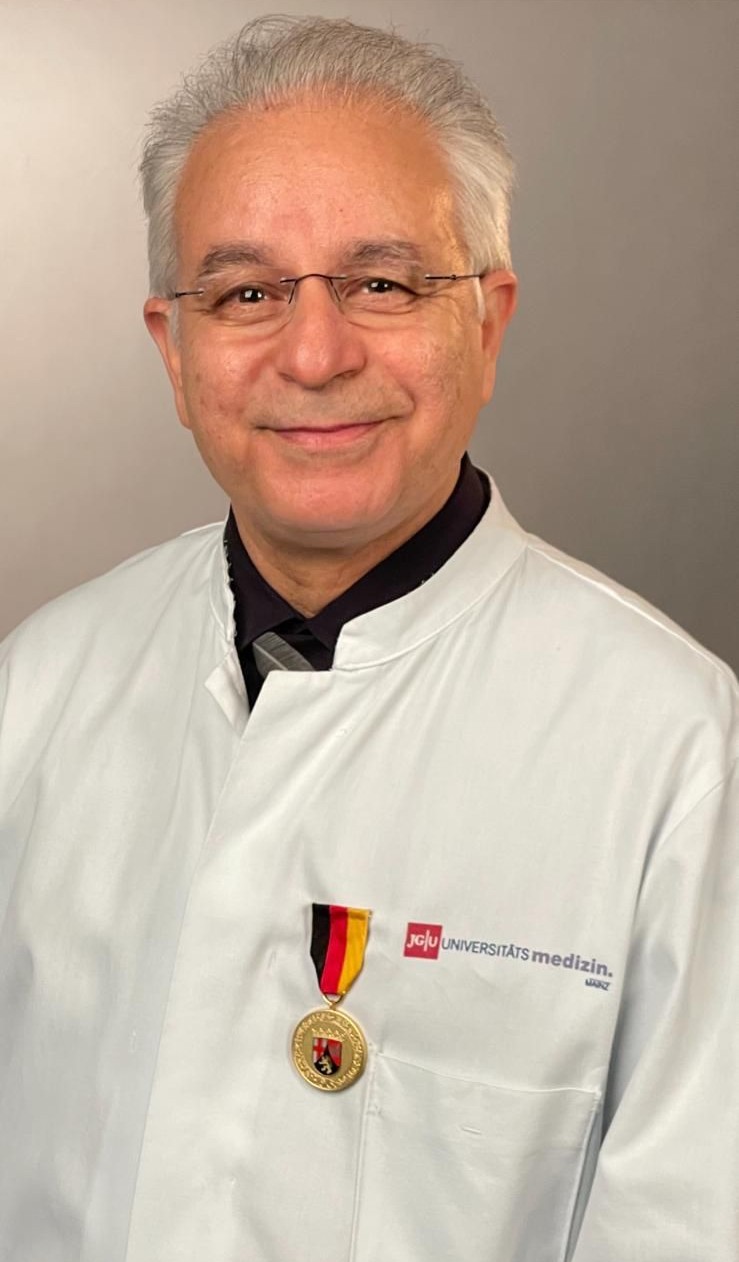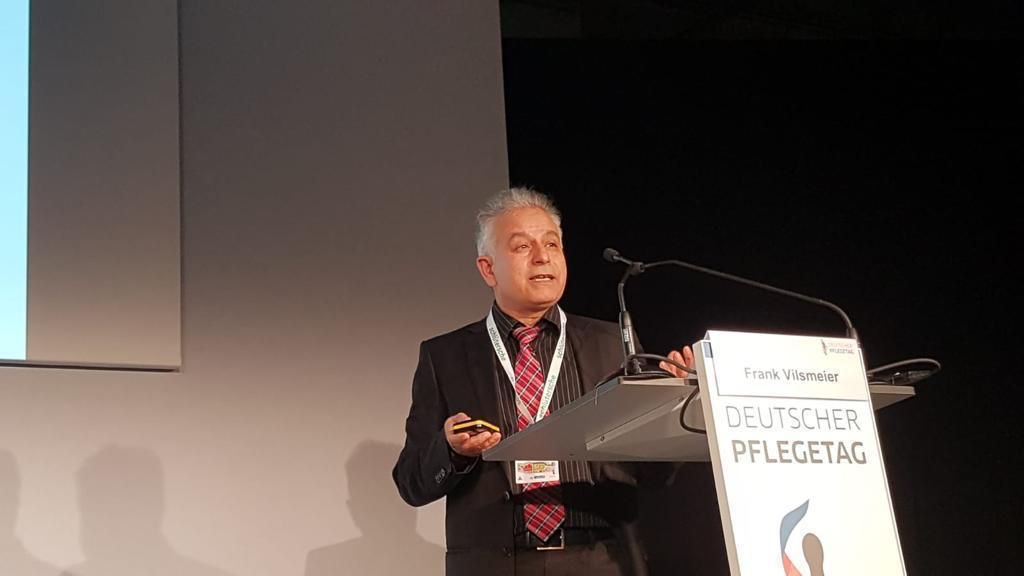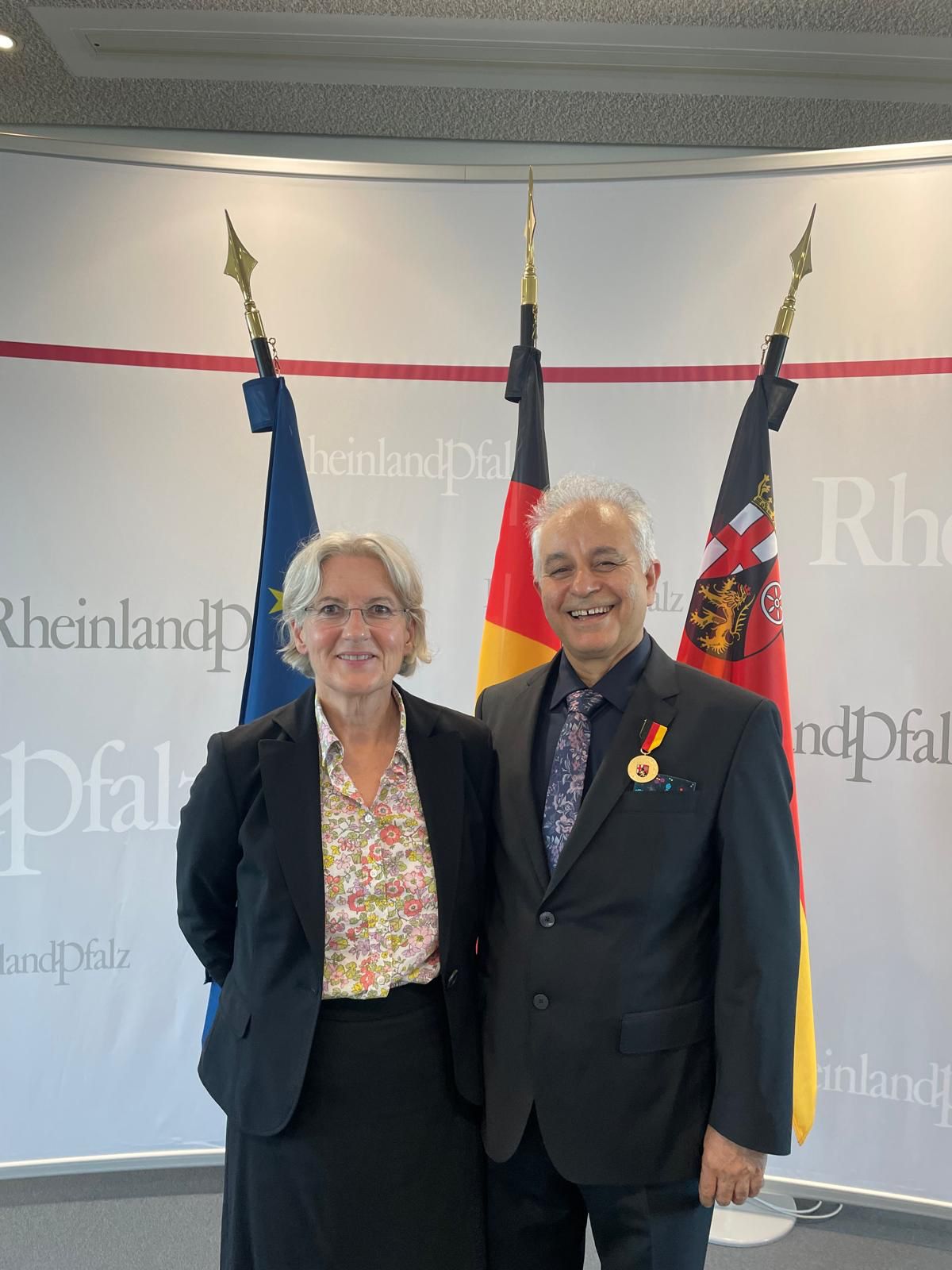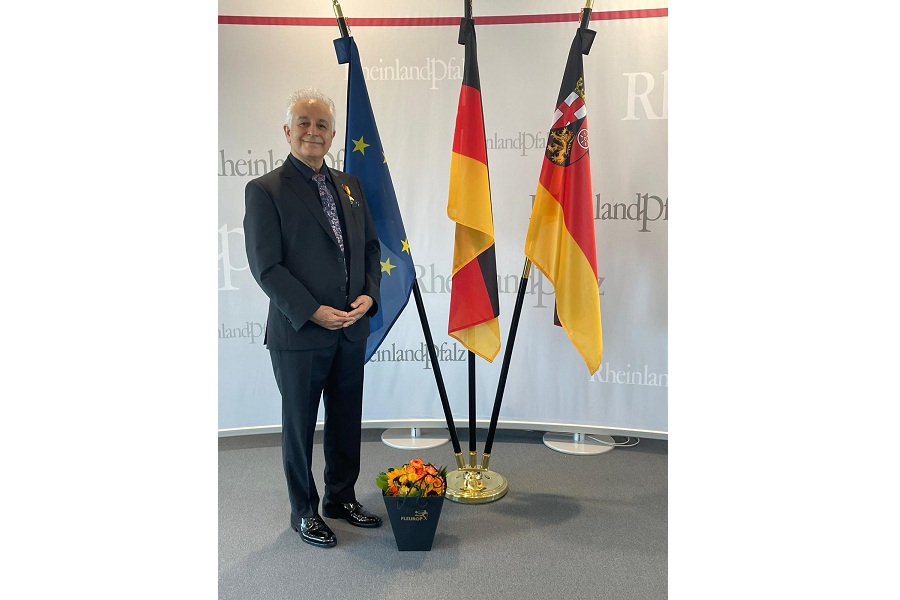Trend News Agency presents an interview with Rahim Schmidt, Azerbaijani scientist, influential doctor, former member of the State Parliament, initiator of the first Chamber of Nurses in Rhineland-Palatinate living in Germany.
In Azerbaijan and Germany you are known as a doctor, professor and politician. However, the first degree you received in Germany is not related to these fields. How do you remember your first years in this country?
I have two doctorates. The first was research in agriculture and virus recognition. The other in medicine. So I got my doctorate in two scientific fields. It's a little different. I'm not a professor. I heard a lot about it in our culture. I think it comes from a great respect. I spent four years on each of these two different doctorates that I got, which is a lot harder than a professor's degree. My scientific work has been highlighted at virus recognition congresses. For my second scientific work in the field of medicine, I was awarded by the German health organization. As a reward they presented me with 1,500 euros. I donated these funds to the poors.
I moved to Germany from Iran in 1978. I was very young, I wanted to come back because at that time it was very good to study and work in Iran. However, later, some political events took place in Iran's history. So I could not go back to Iran. I started to study medicine because I also had an interest in medicine. I finished my medical field and now I can work anywhere in Germany. You asked me what are my memories here. I came here as a teenager with wishes. I wanted to come back to my city after 5 years to my family, friends. I come from the town of Miyane in Southern Azerbaijan. When I came to Germany I didn't even know a word of German, I had to learn everything. Considering this, I had to learn the language quickly and get into university. As a teenage boy, I had to do these things alone. Turning 47 is very hard for a person away from work, classes, family. However, I moved forward with sports, meditation, sincerity, activism, love of family, love of culture. Fortunately, I was able to accomplish what I wanted to do. In high school, I was called” politician Rahim ” because of my interest in politics. Then I went and graduated in the medical field. So it was all good.

Then how did you decide to become a doctor and get an education in this field?
Medicine for me is a very interesting science, field. This is because the work of this field is connected with man, with the nature in which man is. My first specialty, agriculture, is also nature-related. They (medicine and nature) fit together very well. Socio, medical, cultural, etc. also exist in the medical field. You have to work with people every day of the year, you need to gain experience. Each person tells you their biography. It's a very beautiful way of doing it. If you also go anywhere in the world, you will have a job. That's why I loved this field. Especially considering that we Azerbaijanis have human love, I set my goal to serve people. I should mention that I am currently a political national activist here as a migrant. My late father passed away when I was 6 years old. We were 7 siblings and I was the last child in the family. I mean, I also help myself as a spiritual healer by serving people in the medical field, overcoming the spiritual pain of this life of alienation, of living away. I mean that's the way life is, one is always thinking about the meaning of life, the meaning of labor and going for it.
Who has supported you on this interesting path?
I believe that people should deserve help through their hard work and sincerity. Since I came to Germany, I have worked with Germans in all the areas mentioned because of my interest in culture, music, history, politics. For many years I was a member of the International Pardon Organization. In Germany I did volunteer work related to nature. I have worked together with Germans in many areas. We have very close friendship with Germans and I love this country. The cultural mentalities of Azerbaijanis and Germans are also similar. They also helped me a lot during those difficult years. I have also been helping this community for over 40 years in return for that support. If someone has parents, has medical issues or needs help, I always try to help them with the support of my friends and our resources. Germany is a beautiful country and its people are very precious.
How did you get into the German political arena? In general, was it difficult for an Azerbaijani to be the only immigrant politician elected to the parliament of a region like Rhineland-Palatinate in a country like Germany?
Yes, as I mentioned, I have been interested in politics since high school. Since my arrival to Germany, I have been involved in the political and cultural affairs of this society. Because I was interested, I joined the Green Party and was a member for 10 years. As you mentioned, in the 80-year history of Rhineland-Palatinate, no foreigner has been elected to the political parliament, neither before me nor after me. At the moment, I am the first and the last. This in itself is a historic achievement. I, as an Azerbaijani, am very proud of it. During my time in Parliament, one of my main duties was to work as a representative of the Medical Chamber of Parliament. I established a secular group of the Green Party in Germany. This is also a historic step. No one in any party has ever created this secular group. Since the Constitution of Azerbaijan states that “religion is separate from politics”, this is imprinted in my memory. Also, based on the experience of political sectarianism in Iran, I created a secular group of the German Green Party. For two years I was the spokesperson for this secular group that I founded. Why did I create this group? Because in democracy, debate and comfortable communication is very important. Sometimes it is not taken seriously and now they are facing the consequences.

Despite the fact that you are no longer a deputy, you remain an important member of German society. The same can be inferred from the awards you have received for your volunteer work. As an active member of German society, what can you say about this society?
It is because I am a well-known activist in this community. That's why the German government awarded me a medal for my volunteer work. In Germany, volunteering to help the impoverished is a valuable thing for people to do. Germans consider and value it as part of culture, spirituality, vision and love. A person can be a billionaire and not do all these things. However, they have great respect and appreciation for the fact that a foreigner, a doctor and an Azerbaijani is doing these things in Germany. Wherever I go, they are the first to greet me. Because this poor shines like a lamp for people in society. This is one big cultural asset. It's all in line with our culture. This is important to me. It is normal for human beings to strive to work hard, no matter where they are. The government can't do everything. No matter where a person is, they have a duty of conscience to society. This cannot be measured in purchases, money, or expectations. It is a cultural, conscientious duty that each person must fulfill for the sake of their country, and one should not expect anything from the government.
You are the second chairperson of the Association for Poverty and Health in Germany. There, you support homeless people who need specialized medical care that goes beyond standard care. We would like to ask you to tell us a little bit about this aspect of your work.
Approximately 80 doctors in Germany volunteer their time to help the poor. We help those who are homeless, the unemployed, those who sleep under bridges and on the streets in the cold and heat, and in some cases those who face insults and humiliation from people. It is normal for a thinking person, a secular, Muslim Azerbaijani not to let his neighbor starve, to help him when he is sick. Life itself has a spiritual tendency. We are also moving in this direction. Perhaps by doing these positive things, we fulfill our needs spiritually. We have our own ambulance, we have doctor friends from different medical fields every day of the week. Those who call on them are provided services at no cost to them. The machine distributes water in the summer or clothing in the winter, and prescriptions are written. This is our great endeavor. This is because I have been the second chairperson of this organization for 12 years. If you look at our page, 1-2 years ago German President Steinmeier came to our organization. He reviewed our organization, listened to our opinion, brought help to the poor, and expressed his gratitude and appreciation for our work. They appreciate this work in Germany. In addition, the first chairman of the organization-professor, doctor. He is currently elected to the Bundestag.

You also teach to German audiences ...
I have been teaching for many years at the Clinical University in Marburg, the city of students. I am invited to all events organized in the medical field. I have been invited to an event in Wiesbaden and other places. I was in Frankfurt 10 days ago and I have been invited to Berlin, Hamburg, Munich, Hanover, Leipzig and the city of Kiel in northern Germany. Medical organizations invite me to their events. I speak at events about the connection of communication and international medicine. Meanwhile, in 2017, one of my books was published in Germany. This book is related to the field of international medicine. In this regard, I am invited to many places. I want to tell you that there are about half a million doctors in Germany, and since my article about doctors is published in the newspaper every month, doctors know me well. I would like to mention that, as stated on page 2, I dedicated my book, published in 2017, to the Azerbaijani people and to the deceased Heydar Aliyev. So I quoted the poem “I don't fit in this world” by our philosopher-poet Nasimi.
You are a family physician, you work in the political and public sphere, and you also teach. Which of these jobs do you enjoy the most?
Your question is more of a philosophical question. Actually, I like them all. Because I am a person interested in many fields. This is our school of life. My late mother used to say to me when I was a kid, “Son, don't waste your time, focus on the important things.” Sit with people who know more than you do. May God have mercy on our deceased. These words are imprinted on my memory. Science is highly valued in our culture. Our mothers and fathers pay a lot of attention to their children, which is why we gave women the right to vote in 1918. In other words, along with our beautiful religion, it is very important to give secularism and science a great place in our culture and history. That is why our women and youth are among the world leaders in science and chess. Therefore, interest in all spheres of life is the love of life, the meaning of life. I hope that every Azerbaijani, wherever he is, will serve his Motherland and our future generations. I hope that in the future, when I retire, I will be able to voluntarily pass on my almost half a century - 47 years - of experience to our youth, our people and our elders.
P.S. It is worth drawing an interesting parallel with the fact that Rahim Schmidt, an Azerbaijani by nationality, is a member of the German Parliament. Thus, Lawrence Jacob Kun, a German by nationality, was a member of the parliament of the Azerbaijan Democratic Republic and chairman of the fraction of national minorities in the parliament. Lawrence Kun was born in 1884 in the German town of Yelenendorf. Since 1915, he worked as a field manager for oil producer Bekenderf. He worked as an engineer in Ganja in the 1920s. He was a member of the Board of Directors of the production cooperative of winegrowers and winemakers “Concordia” in Ganja. His duties included management of the technical department, office work, and cultural and educational work. When Laurence Kun was elected as a deputy of the parliament of the Azerbaijan Democratic Republic, at the II session of the parliament on December 10, 1918, he spoke about the 100-year friendship between Azerbaijanis and Germans: “...our most sincere good-neighborly relations have never been broken. The Germans of the Azerbaijan Democratic Republic calmly look into the future, hope that their national identity will be protected and that they will continue their peaceful labor life and work for the benefit of independent Azerbaijan...”







